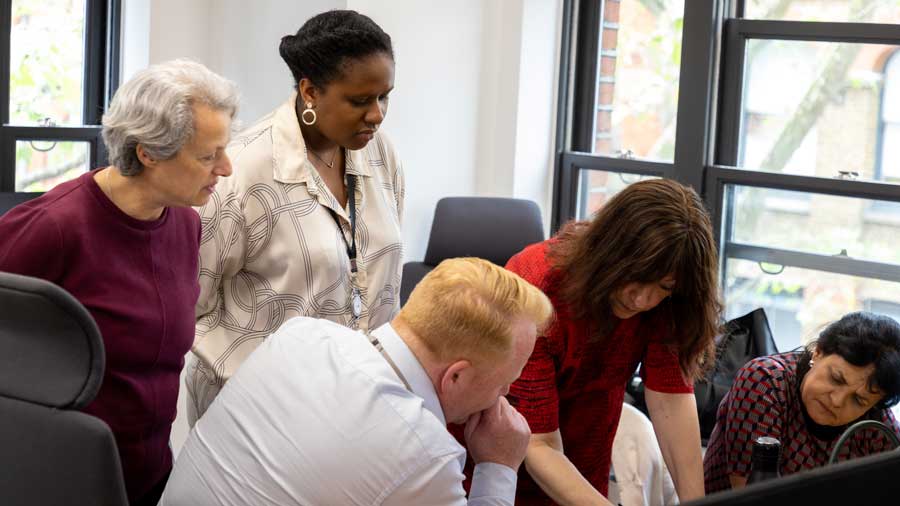Image: Istock
The Law Commission Consultation

REGULATION

Malcolm Lynch
Partner, Wrigleys Solicitors LLP

Malcolm Lynch
Partner, Wrigleys Solicitors LLP
Issue 76 | February 2025
In September 2024 the Law Commission published a consultation on reform of the Co-operative and Community Benefit Societies Act 2014 (CCBSA). This was the first full review of the Act since 1852 and long overdue.
Origins of the law
The intention of the original legislation was to provide a simpler alternative to permit people to carry on the welfare activities of previously unincorporated friendly societies as well as provide an opportunity for trading for a social purpose. It was the legislation used by the early co-operative movement, but it was always far wider than that, involving other social, mutual and charitable business activities. In many ways it was a forerunner to the B Corp or community interest company.
The most significant change since 1852 was to create the concept of a community benefit society and a co-operative society in 1939 as an anti-fraud measure and to require the Mutuals Registry to issue guidance on how this definition should be policed. This was admitted by the sponsoring minister at the time as something which hopefully would not stop the honest man from pursuing the establishment of a society but would discourage the dishonest man.
The situation today
The experience of many lawyers acting for innovative new societies is that the honest man is discouraged too and that it is far easier to establish a company than a society - the reverse of the original intention of the CCBSA. Whilst the approach changes from time to time, the regime over the last decade has lost sight of the purpose of the Act to be a simpler alternative for community business.
Moreover, since 1939, ways to tackle fraud and fraudulent financial promotions have moved on with very detailed provisions in the Financial Services and Markets Act 2000 and secondary legislation. The raison d’etre for the definitions of a co-operative and community benefit society required by the CCBSA in order to stop fraud in societies is therefore no longer appropriate.
Dissatisfaction with the Registrar
The Law Commission has recognised there is some dissatisfaction with the Mutuals Registry as a Registrar which is not as sophisticated as Companies House, and acts as a quasi-Regulator in the application of its guidance without necessary legal authority.
Once registered, societies can still be subject to challenge by the Registrar, not because there is concern that there is fraudulent activity going on, but because for one reason or another, the society is not following the ideal requirements of the Registrar’s Guidance, which has no lawful basis. The Registry seems to have lost sight of its role as a provider of a service to assist economic development by social purpose organisations.
Improving on the Law Commission’s flawed proposals
To try and provide more certainty the Law Commission has proposed that the definitions of what is a co-operative or community benefit society include a much smaller number of key factors. The problem with this proposal is that there are a variety of approaches to the existing requirements of societies many of which are mutually incompatible. For example, if democratic decision making is a requirement, is it possible to have a public benefit member (such as a local authority) with some special rights?
Regrettably, the Law Commission go further and propose that if they introduce much narrower criteria for registration that all societies should follow the new proposed definitions within 18 months of their introduction. There has understandably been push back against these proposals. Fortunately, the Law Commission has indicated that it is listening.
A new expansive definition for societies?
A group of lawyers from Anthony Collins, Bates Wells and Stone King, which I have chaired, have suggested returning the legislation to its origin as a law for social purpose driven organisations. There should be a new overarching concept of a social purpose specified in a revised Act with the detail of what that entails included in the modern drafting standards featured in relevant legislation.
It is expected that the Law Commission will consult again on the proposal regarding amending the definitions shortly and this would provide a further opportunity to address this issue.
Some of the other issues the Consultation addresses include:
- The duties of society directors
- Furthering the community investment advantage
- Progress on share capital of societies
- Enabling the Mutuals Registrar to intervene more
- Registration with the Charity Commission
- Cancellation and restoration of societies
- Modernisation and money-laundering
More information on these areas and the consultation can be found here: https://lawcom.gov.uk/reform-of-co-operative-and-community-benefit-societies-proposed/
Joined-up Government
In the Law Commission’s final remarks it asks whether the governing department should change from HM Treasury to the Department of Business and the registry change to Companies House. This could bring the knowledge of corporate entities and efficient registry practice to the world of societies and heighten the profile of this very effective but neglected sector. Unfortunately, the question was outside the formal brief given to the Law Commission but is perhaps encompassed by the aim of supporting a more proportionate and effective regulatory environment. This suggestion was approved by the National Housing Federation in a previous consultation and is still very relevant today.
What next?
There are many small suggestions in the 87 consultation questions which may lead to small improvements in the law for societies, most of which will not affect the day-to-day operations of societies. However, it would be a missed opportunity if fundamental changes are not made to restore the CCBSA to its status as a simple means of communities combining together for social purposes.
I have indicated there are clear disadvantages for all societies in the proposals of the Law Commission which need to be changed. But there is an opportunity for a new start in which societies should involve themselves. It is unlikely a better chance will occur any time soon.

